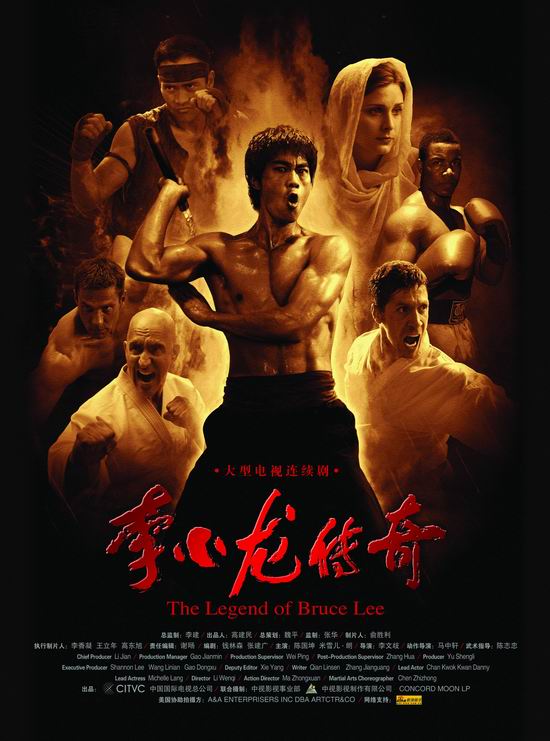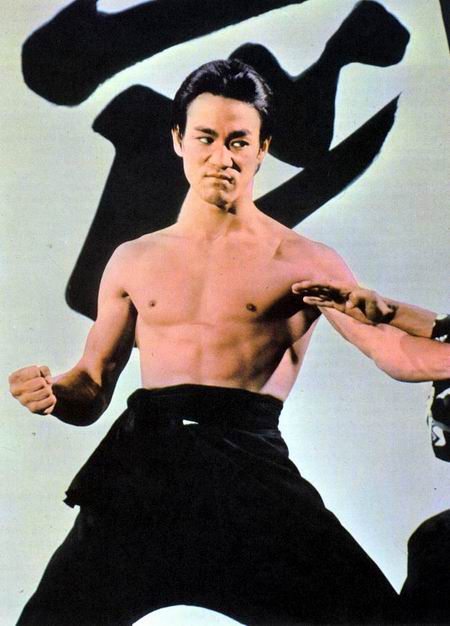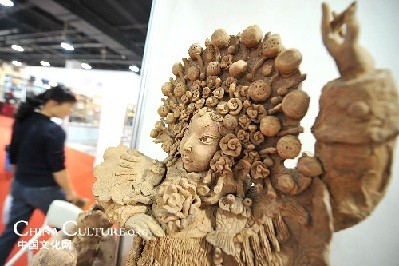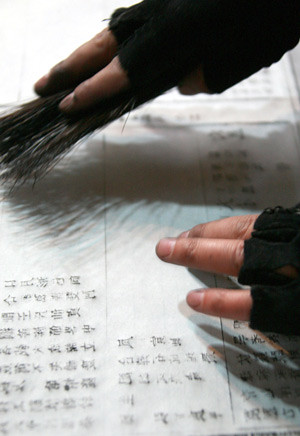| Home > Living in China > Kungfu |
Keet Kune Do will reappears on screen: BRUCE Lee and Chinese Kungfu
The Legend of Bruce Lee is shot by China Central Television (CCTV) and will be shown on TV screen with a 50-part prime-time biography.
BRUCE Lee, the world’s most famous kung fu artist, is finally receiving recognition in China. Lee’s films only started surfacing in China on video in the 1980s ?years after his death in 1973 from swelling of the brain. His worldwide fame was suppressed by a Communist Party suspicious of outside influences.
 |
|
Screen-shot of The Legend of Bruce Lee | -
now hopes to fill the void with the exhaustive ?.2 million biography, The Legend of Bruce Lee. Shot in China, Hong Kong, Macau, the United States, Italy and Thailand over nine months, the series will start on Sunday on CCTV’s flagship channel, with two episodes airing consecutively every night in a two-hour slot.
Unlike past films about Lee, The Legend of Bruce Lee is unusually detailed in tracing Lee’s life, from his teenage years in Hong Kong to his move to the US, where he studied and taught martial arts, to his movie career and early death at 32.
"We’ve only seen the glorious side of Bruce Lee ?he comes out all guns blazing. His films are entertaining but very few people know what injuries he suffered and what grievances he suffered," said Danny Chan, the Hong Kong actor who plays Lee.
The 33-year-old actor, whose best known works are Stephen Chow’s Kung Fu Hustle and Shaolin Soccer, makes up for his lack of star power with his uncanny resemblance to Lee, with his thick eyebrows and slender body.
Lee’s message of Chinese strength in movies like The Chinese Connection and Enter the Dragon also matches that of the Chinese government.
Michael Berry, a professor in Chinese cultural studies at the University of California, said: "Lee had strength, agility, pride, intelligence, not to mention charisma, which, coupled with the pro-Chinese rhetoric in his films, have made him a potent symbol for the powerful new China that is now rising."
CCTV official Zhang Xiaohai said: "He wrote the words ’kung fu?into English dictionaries. He made people aware of China."
Lee is shown bursting with pride in a trailer shown at the news conference, bellowing: "I am Chinese" to spectators after defeating a foreign opponent.
In an apparent effort to boost national pride, the series was originally scheduled to be aired before the Beijing Olympics in August, but was pushed back by the period of mourning for the 70,000 people killed by the Sichuan earthquake in May.
The series was authorised by the Lee family. The producer, Yu Shengli, said Lee’s daughter, Shannon Lee Keasler, approved the script. It is unclear, however, how Lee himself, who spent his time in the US and Hong Kong, then a British colony, felt about the Communist Chinese regime.
The director, Jia Zhangke, said he only found out about Lee by watching his movies on videotape in the early 1980s.
 |
|
BRUCE Lee |
PROFILE
BRUCE Lee was born in San Francisco, but raised in Hong Kong. His father, Lee Hoi-Chuen, was a famous Cantonese opera star. Sent back to the United States at the age of 18, the young Lee gave a martial arts demonstration at the 1964 Long Beach Karate Tournament. It was there that he was spotted by the hairdresser of Hollywood producer William Dozier, and television roles followed.
Lee made his most famous films, including Enter the Dragon, in Hong Kong.
While never a competition fighter, Lee invented his own martial arts style, Jeet Kune Do.
Art
 more
moreThe Dawn Breaks
(the prehistoric period - the 16th century BC) Ancient documents

2008 World Craft Council General
The 16th WCC General Assembly was held in China’s southern city of

Traditional wooden movable
Villagers print the book of the Chen's family tree

Customs
 more
moreChinese Kungfu
Everybody was kungfu fighting
Niels Tsai, a kungfu enthusiast from Malaysia, was halfway up misty
Tai chi helps cut pain of knee arthritis
The traditional Chinese form of exercise known as tai chi can help
Kungfu Taste: Learn Martial Art in Shaolin Temple
The mention of Shaolin Temple conjures up images of a quiet and




 print
print  email
email  Favorite
Favorite  Transtlate
Transtlate 
